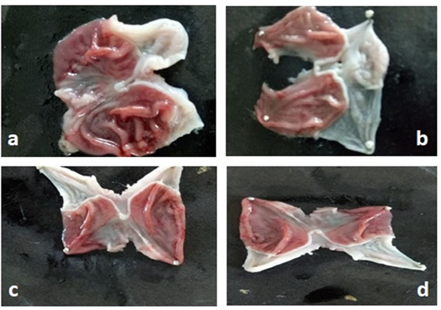Abstract
A peptic ulcer is one of the most common and aggressive disorders in human beings recently. Excessive use of proton pump inhibitors has lead to many other complications including bone weakness and cardiac conditions. In view of this, herbal extracts are found to be the best alternatives so far and thus serve us as sources of new drugs and lead molecules. Due to the presence of phytoconstituents like flavonoids, Glycosides and phenols, it was estimated that the ethanol extracts of Chloris paraguaiensis steud exhibit the proposed activity. The gastroprotective efficacy of an ethanolic extract of Chloris paraguaiensis steud was evaluated by inducing gastric ulcer using ethanol and pylorus ligation methods at two doses as 250mg/kg and 500mg/kg body weight. The percentage of ulcer protection was 82% for Chloris paraguaiensis and 89% for standard, Lansoprazole. The dose at 500mg/kg showed significant and promising activity in comparison with the standard drug. Hence, the gastroprotective effect observed in the present study might be due to phytochemicals such as a flavonoid, glycoside and also it is a dose dependent activity.
Full text article
Authors

This work is licensed under a Creative Commons Attribution-NonCommercial-NoDerivatives 4.0 International License.

